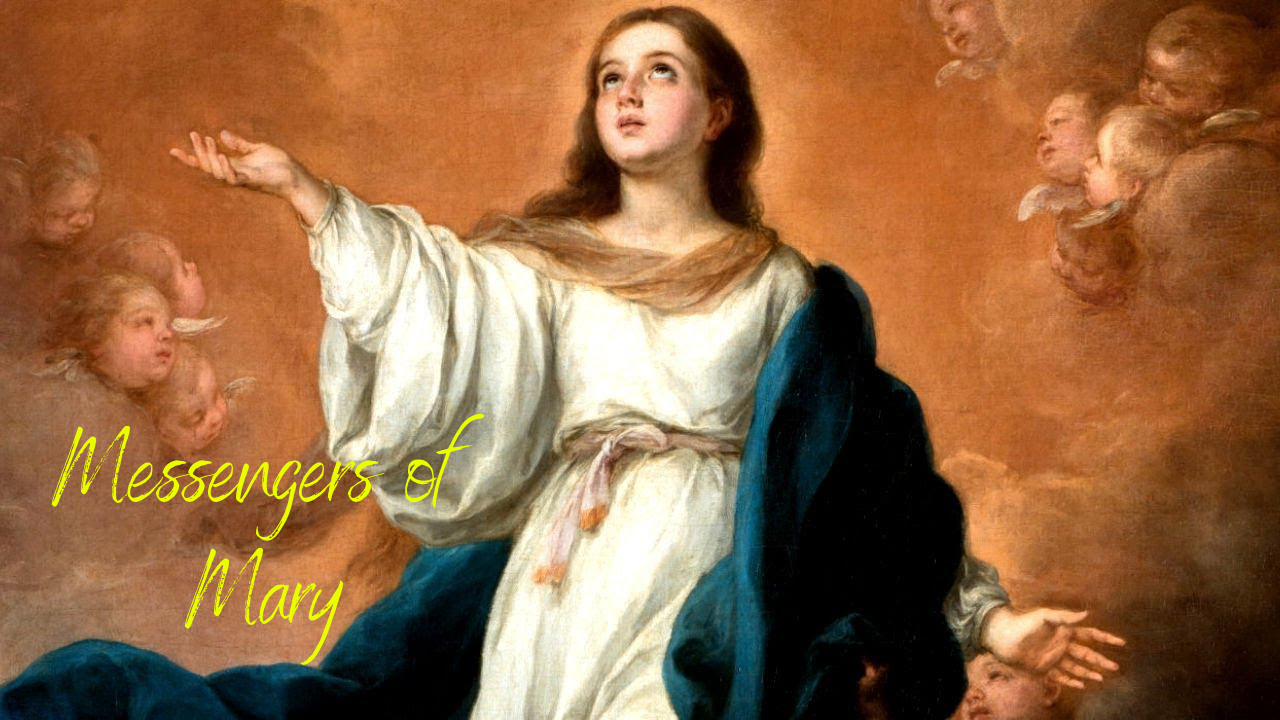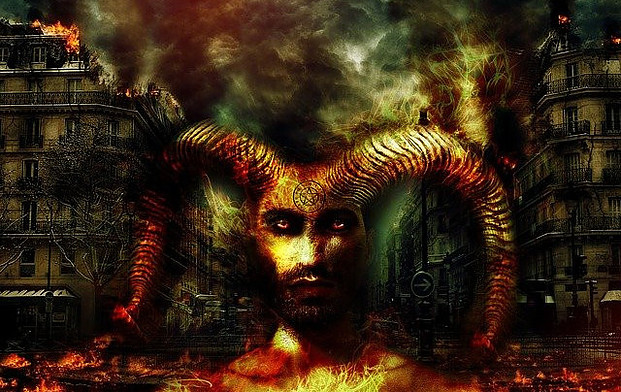
The following essay, Catholic Church Teaching on the nature and location of Hell, is taken from the collected works under the title, Articles and Manuscripts of Dominic Farrell. The document was originally simply titled ‘Hell’ and can be seen below in its originality.
Table of Contents
Hell
A Brief Glance at Hell
A grave crisis of today is a general loss of the sense of sin and likewise of its consequences. The distinction between mortal sin and venial sin is often unknown, vague or misunderstood. Many think lightly concerning the eternal truths, and shrug their shoulders at the mention of things below.
Hell, Purgatory and the Devil are often scorned, hushed up, made fun of or pushed to the back of the mind. Hell is a part of daily language. It constantly slips out of the mouth along with curses and expressions of annoyance, anger, shock or surprise. It has become identified with negative feelings and with whatever throws black smoke over our sunny, selfish and thoughtless lives. But let us go to the roots of Hell and take a moment to look it in the face. What is Hell? Is Hell real? Where is Hell? What’s it like? Who goes there? Why?
Hell or Gehenna refers to the place of punishment and great tribulation on the other side of the grave. The Old Norse word ‘hel,’ being also Anglo-Saxon, points to an underworld, a land of the dead. The Proto-Germanic ‘halja’ referred to ‘one who covers up or hides something.’
But, the word ‘Hell’ as we have it today is generally understood in terms of punishment and fire in the afterlife. We Catholics should know that it is simply the place of the damned, the place where they go who have done grave evil and have not repented of it. It is the everlasting fire spoken of by Christ which was prepared for the Devil and his angels. We have now to deal separately with the above questions concerning Hell.
Defining Hell
Hell is the place of interminable punishment reserved by God for unrepentant sinners; those who have passed out of earthly life in the state of grave sin, without having made their peace with Him, either by an act of perfect contrition or by a Sacramental Confession which is sufficiently well-made. Being in a state of grace is the first requirement for seeing God in the bliss of heaven.
Grace raises us to the supernatural plane. It affiliates a soul to God. It is the seed of eternal glory. A soul cannot behold God while in a state of sin. This would only cause pain; it is a contradiction, it is impossible. Whosoever dies in mortal sin will be damned to Hell for all eternity; there is no alternative. As long as one is outside the grace and friendship of God, so long must that soul be separated from Him. Now since all chance of acquiring merit and all possibility of conversion comes to an end with earthly life, Hell goes on to the infinity of eternity, because the soul is by nature immortal; it would die but cannot. It is the unending separation from the Supreme Good that essentially constitutes Hell.
The fire and other torments of flesh and spirit are secondary. It is against the soul’s nature to be cut off from Being, Life, Truth, Goodness, Light, Love, Perfection and the Source of Supreme Beatitude. If not joined to this Divinity which upholds it, preserves it, was originally intended to be one with it, has loved it and done all It can to save it, there can only remain the greatest possible misery and anguish. If it were not for this primary punishment of the loss of God, Hell would not be Hell.
The Reality of Hell
For the believing Catholic at least, Hell is a reality, it is of Faith. Many mystics and servants of God have witnessed the caverns of Hell and likewise devils and reprobate souls. The Holy Bible referrers many times to Hell in both the Old and New Testament; without Hell, we miss the whole point of the great promise of the Messiah and His mission. God would never have become for us the Saviour that He is, were there no question of our eternal destiny being at stake. God’s efforts have always been directed toward saving man, who has opened for himself the gates of Hell by Original and Actual Sin.
Justice does not reign here on earth, but it shall certainly have its day in the next life. There is a saying that runs thus; ‘hanging isn’t good enough for him.’ And if being put to death seems too light for some criminals here on earth, what then ‘is good enough for him?!’ Deep down, we all have a sense of justice and at times it is so great that we think death itself, even a prolonged and excruciating one, is not ideal, does not seem to satisfy the enormous offenses of some great tyrants or evil doers. Surely then, there is a Supreme Justice which is capable of avenging wickedness beyond all imagination or comprehension. Sin outrages an infinite God; it deserves a truly terrible, an infinite, and an everlasting punishment.
Location of Hell
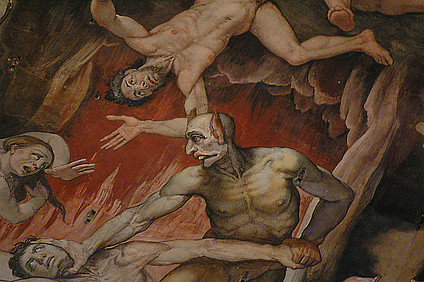
Theologians and Saints believe and state that Hell is in the bowls of the earth. Christ is said to have descended into Hell, meaning the limbo of the Fathers or the Bosom of Abraham. Hell refers to that state in which souls are essentially separated from God. Purgatory, a place of temporary separation, is also believed to be located near Hell in the deep caverns of the earth.
The holy children of Fatima and the Servant of God, Josefa Menendez, whom we are soon to refer to and quote, are true witnesses of Hell, and testify to its being under our feet, in the deep dark depths of the underworld.
What is Hell Like?
It is generally well-known that St. Teresa of Avila was shown the place reserved in Hell for her if she did not give up some inordinate attachment to her cousin. The vision was very brief but unforgettable. The place she describes being led into was a dark tunnel in which the floor emitted filth and an unbearable stench, and this led to a small oven like hovel, where she would be crushed and burned forever. The fire she perceived there was so dreadful that if compared to earthly fire, it were like comparing the ferocious sun to a flickering candle light. Many years later the memory of the terrifying vision still caused her to shudder. The following words are taken from her autobiography:
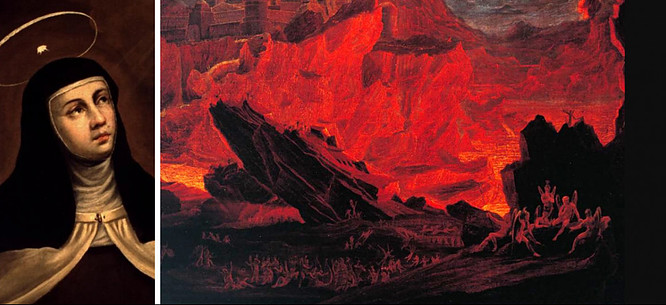
“What I felt, it seems to me, cannot even begin to be exaggerated; nor can it be understood. I experienced a fire in the soul that I don’t know how I could describe. The bodily pains were so unbearable that though I had suffered excruciating ones in this life and according to what doctors say, the worst that can be suffered on earth for all my nerves were shrunken when I was paralyzed, plus many other sufferings of many kinds that I endured and even some as I said, caused by the devil, these were all nothing in comparison with the ones I experienced there. I saw furthermore that they would go on without end and without ever ceasing. This, however, was nothing next to the soul’s agonizing: a constriction, a suffocation, an affliction so keenly felt and with such a despairing and tormenting unhappiness that I don’t know how to word it strongly enough. To say the experience is as though the soul were continually being wrested from the body would be insufficient, for it would make you think somebody else is taking away the life, whereas here it is the soul itself that tears itself in pieces. The fact is that I don’t know how to give a sufficiently powerful description of that interior fire and that despair, coming in addition to such extreme torments and pains. I didn’t see who inflicted them on me, but, as it seemed to me, I felt myself burning and crumbling; and I repeat the worst was that interior fire and despair.’’
Frightful words indeed! This vivid testimony of a Canonized Saint cannot easily be passed off as a fable or a vain imagination. It profoundly affected her and caused her to change her life for the better, to even greater perfection.

Sr. Josefa Menendez many a time saw the pits of Hell and was moreover, often taken down into it. She saw great numbers of niches prepared by the Devil for the souls whom he was hunting. Lost souls were in torment, grievously harassed by demons and by other persecuting souls. They were shrieking out and cursing themselves for their sins. One girl of fifteen said that every day she cursed her parents for not warning her about Hell, to which she was now condemned. She had especially read bad books and had followed her sensuality in everything, she said. Often this Servant of God was a witness of devils and reprobate souls. Another confessed to her that the worst pain they endure in that terrible place is that of not being able to love anymore; ‘we live on hate and malevolence,’ moaned the unhappy being, ‘nothing else do we care for now!’ The loss of God means the loss of love. The damned can neither love nor be loved.
St. Anthony Claret speaks thus of the lost soul; ‘he consumes fire, he breathes fire, he hears fire all around him, tormenting other reprobates, he is walled in by fire, fire surges in his body, in his eyes, in his brains, in his bowls, in his intestines, in his liver, in his heart, in his bones and penetrates into the depths of his soul, working on its faculties and consuming them.’
The three children of Fatima also had a quick but horrifying vision of Hell. This was shown them by Our Lady, that they might feel some of Her immense sadness and be moved with greater pity and zeal for souls. The Blessed Mother also told them that many souls go to Hell because there is no one to pray for them. Here is Lucia’s description of the vision of Hell:
“She opened Her hands once more, as She had done the two previous months. The rays [of light] appeared to penetrate the earth, and we saw, as it were, a vast sea of fire. Plunged in this fire, we saw the demons and the souls [of the damned]. The latter were like transparent burning embers, all blackened or burnished bronze, having human forms. They were floating about in that conflagration, now raised into the air by the flames which issued from within themselves, together with great clouds of smoke. Now they fell back on every side like sparks in huge fires, without weight or equilibrium, amid shrieks and groans of pain and despair, which horrified us and made us tremble with fright (it must have been this sight which caused me to cry out, as people say they heard me). The demons were distinguished [from the souls of the damned] by their terrifying and repellent likeness to frightful and unknown animals, black and transparent like burning coals. That vision only lasted for a moment, thanks to our good Heavenly Mother, Who at the first apparition had promised to take us to Heaven. Without that, I think that we would have died of terror and fear.”
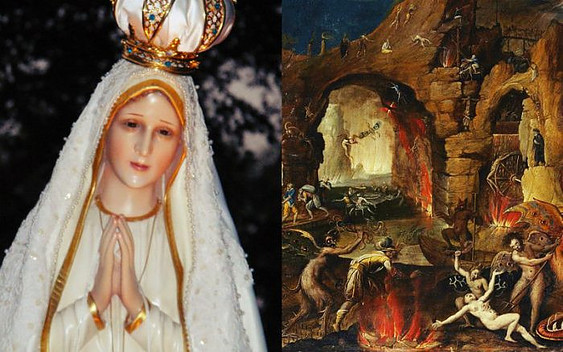
Such is the young girl’s description, too terrible to be imagined. Let this thought of Hell and the desire we have of saving souls, cause us to set to work praying and doing all we can to stop them from falling into this abyss. May Our Lady of Fatima pray for us and assist us to save many souls for God’ greater Glory.
Eternity of Hell
Hell lasts for as long as God shall be God, forever, for all eternity. St. Anthony Claret speaks of Cain, telling the soul to imagine this lost person shedding a single tear once every thousand years. After how many millions and billions of years would his tears flood the whole earth and eventually reach up to the sun?! Yet after it all, his eternity is still only beginning afresh. There is no end, no relief in Hell.
How this thought should move us to the amendment of our own lives and to charity towards our neighbour! Eternity was St. Augustine’s great thought, his ‘Magna Cogitatio.’ King David had in his mind the ‘eternal years’ and was exercised and swept his spirit. The most frequent ejaculatory prayer uttered by St. Alphonsus was ‘Lord, do not send me to Hell!’ He lived with eternity ever in view and prayed always. ‘He who prays will certainly be saved. He who prays not will certainly be lost,’ he would say. The thought of Hell and its eternal duration has filled monasteries and convents and has made many saints. Our Lord asks us what it will profit a man if he gain the whole world and yet suffer the loss of his own soul.
Who Goes There?
As to who goes to Hell, it is ultimately decided by each individual, by their good or bad will. There are many paths and many delusions leading to eternal death and since it is easy to walk in this way and at times hard to walk in the way of Salvation, Christ has plainly said that narrow is the way which leads to eternal life and few there are who go there.
On the other hand, broad is the way leading to perdition and many there are who go that way. It is commonly believed by Saints and Doctors of the Church that most souls go to Hell, most adult Christians go to Hell, most priests go to Hell, and most bishops go to Hell, that the floor of Hell is littered with the skulls of bishops and priests, meaning that they go to the very depths of Hell.
If most souls damn themselves as is true and even the Scriptures say; ‘the just man shall scarcely be saved,’ are we then to conclude that it is really hard to reach Salvation? No, for if we really took to heart what it is to be saved and made some efforts to stay on the right path, we would surely be saved in the end. We too easily lose sight of what lies beyond the present life. But a little reflection and a little more prayer would soon have us on the right way to Salvation.
Avoid Hell by Avoiding Sin
We must not fear death but above all, we must fear sin. Too many fall into a habit of sin, thinking to amend themselves later on. But in the mean time they grow interiorly blind and their heart hardens, so that at death, instead of hating sin as is necessary, in order to be forgiven, they find that they still love it and although they are afraid of losing their souls, they are not sorry for their sins. Hence they are full of vexation and end by dying and falling into Hell. Let us therefore combat sin in ourselves and endeavour to root it out of our hearts, that we may be all the surer of attaining to everlasting life hereafter.
Pray for Sinners!
Offerings of the Precious Blood are very powerful means of saving souls from Hell. We should hear Mass whenever possible and above all lead good Christian lives. ‘An offering is more than a prayer’ says Fr. Faber, ‘for in prayer we are the recipients, but in making an offering, we give something to God and He feels beholden to us.’ The following is an offering which we would do well to make each day.

An Offering of the Precious Blood for Souls
O my God, I beg of Thee in union with the Immaculate Heart of Mary, through the merits of the Precious Blood offered Thee in every Sacrifice of the Mass throughout the world, to grant that this day one mortal sin may be averted, one soul in doubt may be converted to the truth, one soul about to die in sin may receive the grace of repentance and a happy death, and the deliverance of that Soul in Purgatory which is nearest Heaven. I wish by this offering to console the Heart of Jesus in agony for the souls lost through the teaching of error against the true Church of Christ Jesus, Our Lord. Amen.
